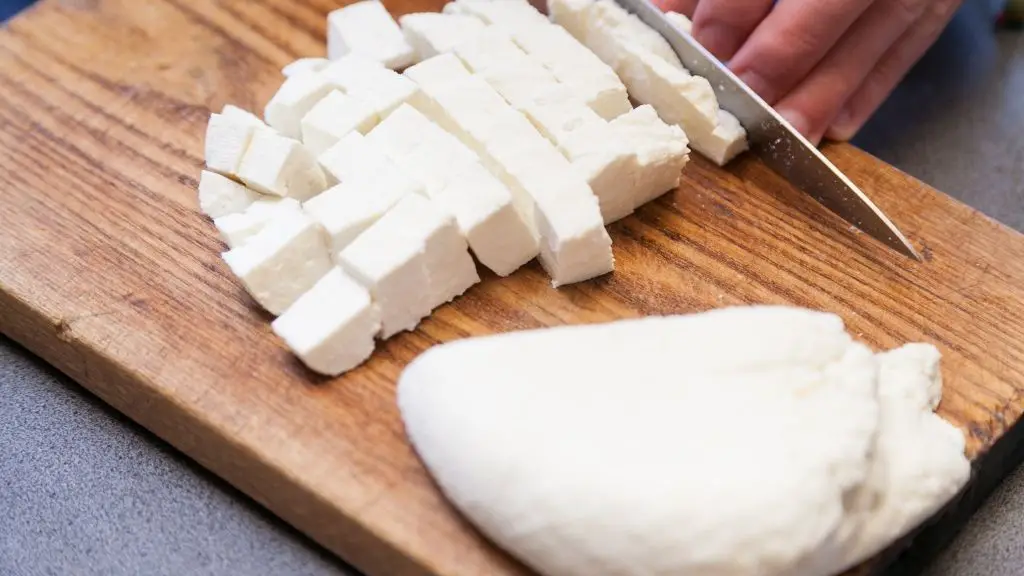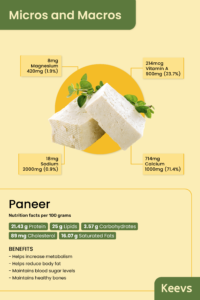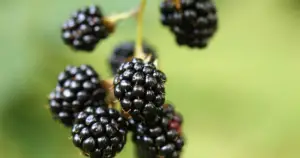Paneer Nutrition Facts Per 100g and Its Health Benefits

Paneer can be delicious and healthy?!
Yes! It can help reduce your body’s fat content, increase your metabolism, and help maintain your body’s blood sugar levels.
Who would’ve known?!
Paneer, a staple in Indian cuisine that also goes by the name of cottage cheese, has found a place in everyone’s heart.
From paneer Manchurian to paneer butter masala, we’ve seen it all, and we love it all the same.
So does paneer have any nutritional value, or is it just an ingredient that makes up a lip-smacking dish? Let’s find out!
You should learn about Indian paneer nutritional value per 100g. Paneer is the best food choice for patients with diabetes.

Paneer nutrition facts per 100g?
Consuming 100g of paneer gives your body 321 kcal of energy. What else does paneer enrich our body with?
Paneer nutritional value per 100g
Paneer is used in a variety of dishes from North India and nearby regions. Traditionally, panner is made with buffalo milk in the Indian country. Paneer nutrition is specifically preferred by vegetarians who cannot get sufficient protein from other food sources. There are numerous benefits with Paneer to your health.
Paneer nutrition facts will help you include the right amount of protein in your daily diet. Please look at the below paneer nutritional value or paneer nutrition facts 100g:
The following are paneer nutrition facts per 100g according to the USDA [2].
| Nutrient | Content in 100g | RDA (% of total RDA) |
| Calcium | 714 mg | 1000 mg (71.4%) |
| Saturated fats | 16.07 g | 30 g (53.5%) |
| Protein | 21.43 g | 52 g (41.2%) |
| Lipids | 25 g | 77 g (32%) |
| Cholesterol | 89 mg | 300 mg (29.6%) |
| Vitamin A | 214 mcg | 900 mcg (23.7%) |
| Carbohydrate | 3.57 g | 130 g (2.7%) |
| 8 mg | 420 mg (1.9%) | |
| Sodium | 18 mg | 2000 mg (0.9%) |
So paneer is indeed loaded with nutrients. Paneer is especially rich in protein, so if you plan on working out, panner can be your power meal! Paneer nutrition plays a major role in the human body in various muscles and tissues present in our body.
Also Read: Rice Nutrition Facts 100g
Paneer Nutritional Information
Nutrition Facts
Serving Size100g
- % Daily Value *
- Cholesterol 89mg 30%
- Sodium 18mg 1%
- Total Carbohydrate
3.57g
2%
- Protein 21.43g 43%
- Vitamin A 214%
- Calcium 714%
- Magnesium 7%
* The % Daily Value tells you how much a nutrient in a serving of food contributes to a daily diet. 2,000 calories a day is used for general nutrition advice.
Paneer, a healthy and nutritious ingredient?
Paneer is an Indian cheese that is made from curdling hot milk. The acid used to curdle the milk determines the flavour your paneer is going to carry.
Once the milk is curdled, the solid particles, mostly milk protein, separate from the whey. The whey is then drained, and the paneer is left aside to set.
Once set, it has the same texture as that of firm tofu. It can be sliced, grated, and also used as a crumble. Paneer can be fried, tossed in a pan to add in a salad, added to curries, and consumed as a side dish.
Although you can eat it raw, we would advise you to cook it before consumption.
| Although paneer is a dairy product, it is comparatively low on lactose; around 2.0 – 2.7% Too much lactose can be hard on the digestive system and might cause nausea. |
Did you know that paneer is easy on the stomach?
Yes, indeed it is!
It is easy to digest due to the low levels of lactose. It can also help prevent various stomach disorders in people as they grow older [1].
Also Read: Vitamins in Milk
Is paneer a staple in your household, or is it reserved for special occasions?
| It’s a staple. I just had it the other day! | It is prepared only on special occasions 🙁 |
Is there a difference between people who consume paneer as a staple and people who don’t?
Although there are no differences that visibly stand out, if paneer is part of your diet, you might be experiencing a few of these benefits!
- Healthy looking skin due to the vitamin E, selenium, and antioxidants present.
- Strong and healthy hair due to the presence of protein and casein.
- Healthy metabolism, as the high levels of dietary fibre in paneer aids in digestion.
- Healthy muscles, as paneer, is rich in proteins.
Nutrition facts and health benefits of Paneer
Paneer is rich in various nutrients.
Its nutritional profile varies depending on the type of milk used and the acid that is used to curdle it.
How are these nutrients beneficial to our body?
What are the health benefits that come due to paneer nutrition facts per 100g?
To name a few, paneer:
1. Helps reduce the body’s fat content and increase metabolism [3, 4]
Paneer is an excellent source of linoleic acid. It consists of around 22g in one serving.
Linoleic acid may help modulate the immune function, re-synthesize glycogen, and potentiate bone mineralization.
It also increases lipolysis and reduces the accumulation of fatty acids on the adipose tissue. Doing so also prevents the deposition of fat in the arteries and reduces the chances of any cardiovascular diseases.
2. Maintains blood sugar levels [5]
Paneer is rich in magnesium and can help control the body’s blood sugar levels, as magnesium plays a vital role in doing so. Low dietary intake of magnesium has been related to the development of type 2 diabetes.
The high protein component in paneer also prevents abrupt variations in the body’s blood sugar level as it helps in the slow release of sugar into the blood.
3. Maintains healthy bones [6]
Calcium, which is abundantly found in paneer, helps maintain your bones and teeth.
Inadequate consumption can lead to osteoporosis. Consuming the right amount of calcium can help increase your bone mass and therefore reduce your fracture rates.
It is also needed for our heart, muscles, and nerves to function properly and for our blood to clot.
| Nutrition facts for 100g of paneer include the presence of magnesium, protein, vitamins, etc. in abundance. It can keep your muscles healthy while also ensuring that your heart and blood sugar levels are stable! |
How to consume paneer?
Paneer is one of the most versatile ingredients you can find.
Some of the curries that you can incorporate into your diet are:
- Shahi Paneer
- Paneer butter masala
- Tawa Paneer
- Malai Kofta
If you’re not up for some curry during the day, you can always use paneer for a side dish;
- Paneer 65
- Chilli Paneer
- Paneer manchurian.
Since these foods require a lot of oil, it is best to watch your intake and limit them as much as possible. However, for a healthier option, you can slice them into cubes and toss them in a salad!
While cooking with paneer, you can try soaking it in warm water for 10 minutes before adding it to your dish, as this can help retain moisture, and save calories.
If you are vegan, you can consider replacing paneer with tofu. Tofu is made from soy milk and will therefore suit your diet.
Also Read: Vitamins in Curd: Health Benefits of Curd, Nutrition Facts
How much to consume panner in a day?
The ideal amount of paneer that you can consume in a day is about 100 grams.
The best time of day to consume it would be in the morning, as it prevents you from binging for the rest of the day.
Therefore, including it in your breakfast will work in your favor and help you in the long run.
Toss it in a salad, or cook up a quick snack, and you’re good to go!
What if I consume in excess?
At times, we overindulge and forget to watch our intake.
If that happens once in a while, you’ll be good to go after slight side effects like
- bloating,
- gas,
- diarrhea, and
- stomach pain.
However, if it continues consistently, you’re at the risk of
- Increasing your cholesterol levels, and
- Gaining weight
If you’re a kidney patient, only consume paneer as per your doctor’s advice.
Does paneer go bad in the fridge?
Paneer is a perishable ingredient. You can only store paneer for a maximum of three days in a refrigerator.
Paneer is essential to keep it in cool temperatures; if not, it might go bad.
Wrapping up!
Paneer is versatile and highly nutritious. It is one of the few ingredients that can be delicious while also ensuring great health.
However, like every other food item, it is important to watch your intake and ensure you’re consuming everything in the right proportions.
Is paneer going to be a part of your daily diet now? Let us know in the comments below!
Also Read Vitamins in Honey: Health Benefits of Honey You Need to Know
References
- Kumar, Sunil et al. “Paneer-An Indian soft cheese variant: a review.” Journal of food science and technology vol. 51,5 (2014): 821-31.
- USDA. “Paneer” Food Data Central, (2019)
- Whigham, Leah D et al. “Efficacy of conjugated linoleic acid for reducing fat mass: a meta-analysis in humans.” The American journal of clinical nutrition vol. 85,5 (2007): 1203-11.
- Lehnen, Tatiana Ederich et al. “A review on effects of conjugated linoleic fatty acid (CLA) upon body composition and energetic metabolism.” Journal of the International Society of Sports Nutrition vol. 12 36. (2015)
- Barbagallo, Mario, and Ligia J Dominguez. “Magnesium and type 2 diabetes.” World journal of diabetes vol. 6,10 (2015): 1152-7.
- “Calcium and Vitamin D: Important at every age” Health info- NIH Osteoporosis and Related Bone Diseases – National Resource Center
![Blue Foods List [with pictures]](https://keevs.com/wp-content/uploads/2023/03/Blue-Foods-List-with-pictures-300x158.png)






